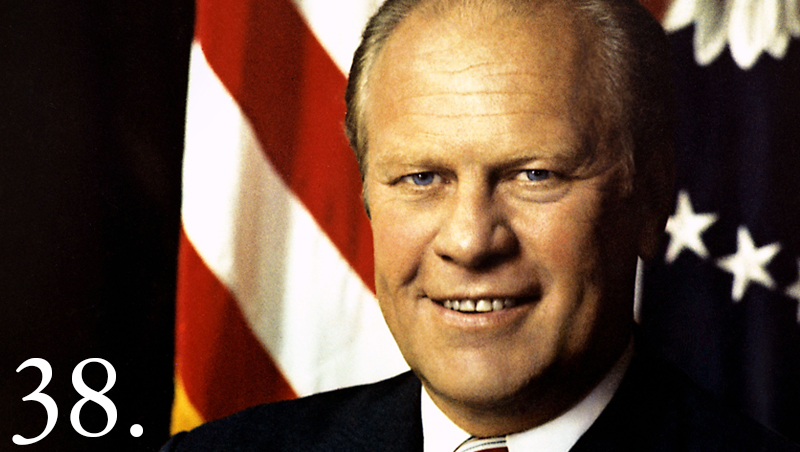Image by Clker-Free-Vector-Images from Pixabay
Updated April 19, 2018 –
Throughout history, there have been ruling classes in every region of the world. Noteworthy in Europe were the Dark Ages in which the ruling classes dominated ordinary, hardworking folks.
That’s true for 21st century America. But like the Age of Enlightenment in the 1700s, America’s ruling class is getting trumped by a voter revolt.
From the 9th to the 15th centuries in medieval Europe, it was also called feudalism. Ruled by nobility, it was highly political just as is the case in America now.
There were the royal bloods – land-owning families who ruled financially and socially. They were served by knights, professional soldiers, who fought the royalties’ battles.

Lords owned the land. Citizens held the land owned by the ruling class – in exchange for their crops, goods and/or labor.
Free men provided military services. If they were wealthy, they were able to afford a horse and armor, or they paid others as their substitutes to serve the monarchs.
In the late 12th century, when a French prince became King Louis VI, the knights and noble class began to amalgamate.
Heraldry became prevalent in the 13th century. Sons of knights became squires and became eligible for knighthood.
By a French Parliament ruling, un-free men couldn’t be named knights unless the king approved.
That meant more pomp and ceremony as the elite knightly class began to sport prestigious coats of arms. Jousting tournaments were all the fashion.
It was a similar situation but different in England. Knighthood was not hereditary but the knightly class did dominate.
Scottish Enlightenment
During the 1700s, a Scottish pioneer in political economic theory, Adam Smith, authored “Wealth of Nations” in which he created the terms “feudal government” and “feudal system.”
He became influential in the Scottish Enlightenment.
In essence, the Scottish Enlightenment proclaimed the value of reasoning with a rejection of unjustifiable authority by the ruling classes.
Age of Enlightenment
Also in the 18th century, French authors launched the Age of Enlightenment, in which they denigrated feudalism as the Dark Ages.
Henri de Boulainvilliers penned “Histoire des anciens Parlements de France.” Montesquieu wrote “De L’Esprit des Lois.” They viewed French monarchy as a duplicitous means of political gain.
Greatly influenced by Montesquieu’s philosophy regarding the need for the separation of powers, a special document was produced in 1787 — America’s Founding Fathers wrote the Constitution.
Today in America, the so-called establishment is strikingly similar to the nobility class of long ago feudalism.
On both sides of the political spectrum, they all want to maintain the status quo — their power and control. The Republican party has its share of elites in the establishment.
In addition to career politicians who have been enriching themselves on the public’s payroll, the establishment includes Super PAC lobbyists, political consultants, and Conservative commentators who have earned their money from their commentaries and speaking engagements.
Powerless power brokers
Many think they’re power brokers. But in their hubris, they’re learning they’re powerless in stopping President Donald Trump.
He’s engineered economic growth:
He’s created millions of new jobs; reduced welfare rolls; spearheaded tax reform resulting in employee bonuses and higher wages; rolled back of onerous business regulations; launched trade talks designed to reduce the deficit and grow the gross domestic product 50+ percent compared to the Obama years; and miraculously started peace talks with North Korea.
The power brokers didn’t see the coming of Trumpism.
Of course, they failed. Mitt Romney, who ran a terrible campaign as the 2012 the Republican presidential candidate, was cited in the article calling for the 2016-election defeat of Mr. Trump.
Ironically, Mr. Romney made headlines after criticizing Mr. Trump for not releasing his tax returns. But it was Mr. Romney who was ridiculed for delaying the release of his returns during his failed run for the White House.
Road to victory
Mr. Trump ousted former Florida Gov. Jeb Bush, Florida Sen. Marco Rubio became the establishment’s choice. But common sense dictated anyone but Sen. Rubio.
The opportunistic, first-term senator has been disloyal to Mr. Bush, who helped get the young Rubio elected to the U.S. Senate with valuable mentoring and introductions to big donors.
But shortly after his election, it was clear the presidency was his goal.
Sen. Rubio tried to ridicule Mr. Trump on foreign policy but he missed 60 percent of foreign policy hearings and even a higher percentage of other meetings.
Therefore, it was easy to conclude Sen. Rubio has also been disloyal to Florida voters and the American people.
Ostensibly, the Republican establishment didn’t have a preferred second choice.
First-term Sen. Ted Cruz recited scripture and verse but had to fire his campaign spokesperson, Rick Tyler, after revelation of dirty tricks, which adversely impacted Dr. Ben Carson and Mr. Trump in the Iowa vote.
It can be further argued the Cruz campaign had cultural malfeasance. The Washington state Cruz campaign chairman, Graham Hunt, was forced to resign from the campaign as well as his office in the state legislature after he was caught lying about his military record.
But the establishment had other reasons to ignore Sen. Cruz’s candidacy. He had no friends in the U.S. Senate thanks to what’s often perceived as anti-social behavior.
He once labeled Sen. Majority Leader Mitch McConnell “a liar.” Sen. McConnell, who is mentioned in The New York Times article for trying stop Mr. Trump’s candidacy, has been relatively successful in getting Trump-nominated judges approved but he’s not necessarily a liar.
So early on, I predicted the Republican race was over – it was time for establishment Republicans to wake up and smell the coffee – and accept that Donald Trump held the only ticket to GOP success (see Despite Cruz’s Despicable Tactics – Why Trump Will Win).
Naturally, the Democrats have their share of elitists, too.
America’s enlightenment
With Mr. Trump’s election, it’s become obvious that a large part of America is undergoing its own age of enlightenment.
For disaffected voters – the majority of the electorate – the colorful business magnate represents strong challenges to the establishment.
In opposing Mr. Trump, members of the establishment have been wrapping themselves up in the American Flag – trying derail the Trump train for disingenuous patriotic and political reasons. Democrats are disingenuously holding his nominees hostage.
Meantime, the businessman doesn’t pander to the Republican party, self-righteous Conservatives and the establishment. He’s simply a proponent of nationalism, “Make America Great Again!”
So, the salient truth is Mr. Trump’s brash populist messaging and style threaten the status quo, which is analogous with the monarchies of feudalism – their power and control.
Two constituencies
Essentially, Mr. Trump has two constituencies – evangelicals who want to save the country from further dysfunction and debt – and the financially maligned, voters who feel screwed by the systematic condescending by the elite.
At first glance, the evangelical support was surprising. Mr. Trump has been irreverent to say the least. But evangelicals’ priorities were to save the country, protect Israel, and stop the assault on their religious freedom.
Such voters have a combative attitude. They want change.
Mr. Trump has railed against ObamaCare that’s allowed big business – hospitals and insurance companies – to benefit from limited competition. Democrat promises, such as lower premiums and retention by patients of their doctors, have proven to be false.
As a result of his initiatives, businesses no longer suffer from awful bureaucratic and expensive burdens. Self-employed persons and college graduates are finding good-paying jobs.
With the meteoric rise in the stock market and investor confidence, big banks, despite the passage of Dodd-Frank following the Great Recession, have seemingly unlimited earnings and power. They’ve swallowed up small banks and are still paying mega bonuses to executives.
However, small community banks are no longer saddled with restrictive burdens from Dodd-Frank. This has inspired small business confidence and is making it easier for entrepreneurs to get business loans and create jobs.
Trade policies, jobs
Mr. Trump’s call for a change in trade policies has widespread appeal for anti-establishment voters.
For example, President Obama with establishment Republican support, implemented the free-trade pact with South Korea with alarming repercussions. The trade deficit has exploded and eliminated 130,000 American jobs.
That’s just tip of the proverbial iceberg. Badly designed trade deals have eliminated 4 million American jobs.
Mr. Trump has received rave reviews in blue-collar America for his warnings about inversion – companies moving abroad. But his tax reform has prompted American companies to repatriate trillions of dollars.
To the dismay of the Republican establishment and liberals, Mr. Trump gained widespread approval for calling for an end to illegal immigration by building a wall between the U.S. and Mexico.
So if Mr. Trump continues to smash his competition, it’s for good reason. It’s time to trump the ruling class establishment — to make America great again.
From the Coach’s Corner, you can read dozens of public policy articles here.
Another Trump article:
If You Emulate Trump, Would You Profit? Yes and No — Yes, it’s true that many of Donald Trump’s personal, business and presidential-campaign strategies are worth copying. Much of his approach would enable you to make more profit. As you no doubt surmise, there are caveats.
“Ohio claims they are due a president as they haven’t had one since Taft. Look at the United States, they have not had one since Lincoln.”
-Will Rogers
__________






